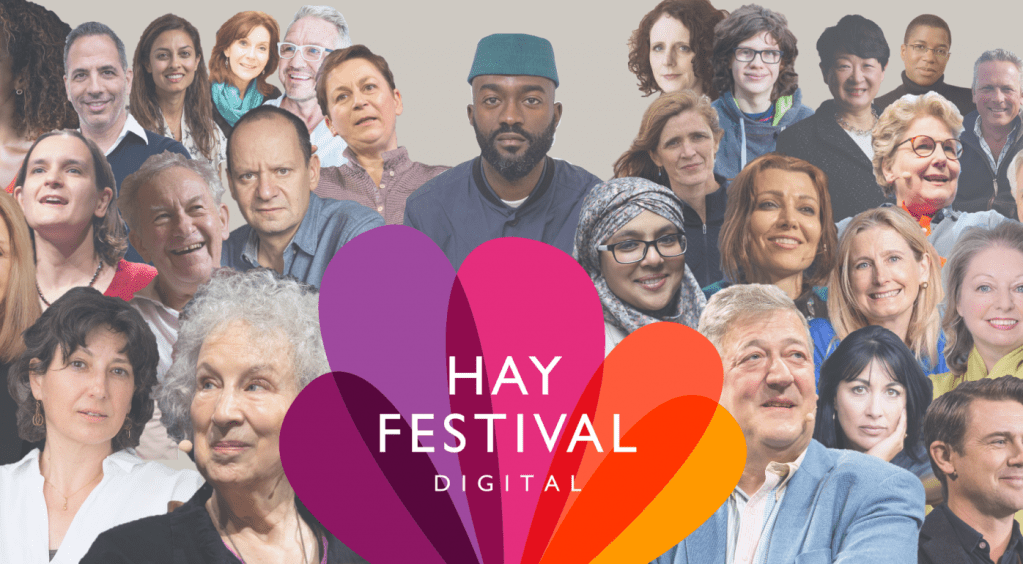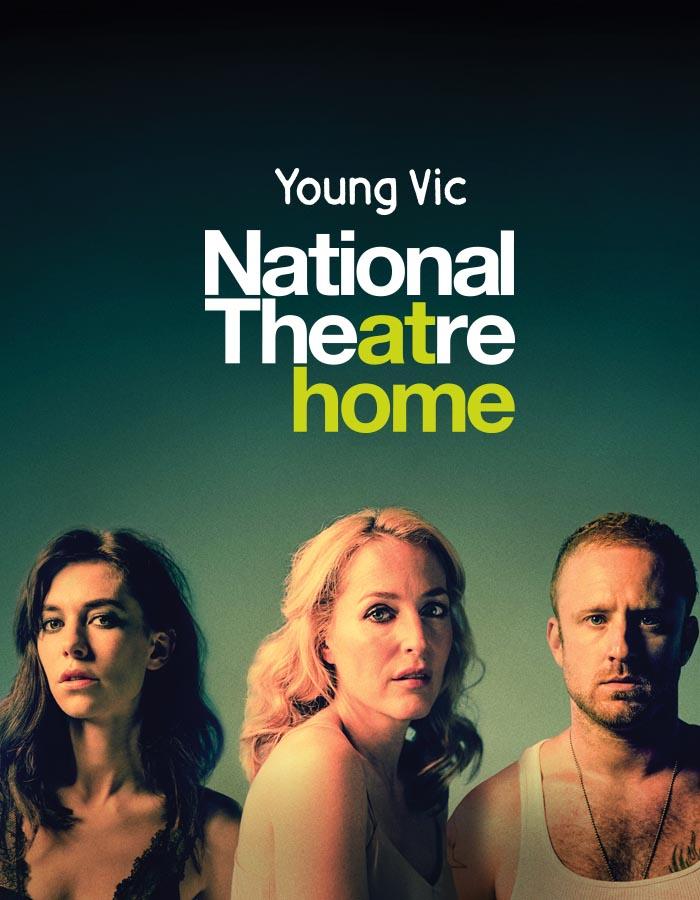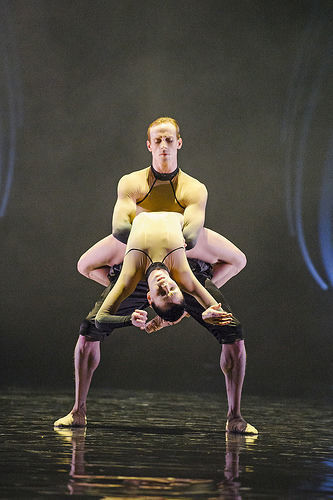Arundhati Roy, in her signature wisdom, wrote in April that ‘the pandemic is a portal’: this year, it is impossible to deny, Covid-19 drew us across a collective threshold, and there is no going back. In a year that the veils were lifted, where our stories and systems, both personal and cultural, were laid bare under a bright, unforgiving light, we were given the gift of 20:20 vision: society cannot function without people who are normally paid the least and are given the least amount of respect; underfunding public services, including healthcare, is a short-sighted, political decision that has resulted in the deaths of tens of thousands; we continue to fester in the sickness of white supremacy and racism that brutally terrorises and kills; we are approaching a number of one-way doors that will result in climate catastrophe. This pandemic was an apocalypse: a word that comes from the Ancient Greek, meaning ‘an uncovering’, a revelation. In spite of the death, chaos and suffering it has unleashed, I am convinced that we needed it. Death, chaos and suffering were mightily at work beforehand, we just didn’t realise it.
Almost as soon as the pandemic put a stop to our hectic, exhausted lives, it became clear, like all moments of change, great and small, that we have a choice: to bury our heads in the sand and avoid the pandemic; to desperately cling to the familiar shores of neoliberalism, white supremacy and exploitation; or to take the plunge into these unknown waters and to live more consciously, meaningfully and compassionately. Joseph Campbell wrote that ‘the neurotic drowns in the same waters in which the mystic swims with delight’ and whilst at times I caved to cynicism and despair, particularly later on in the year, I have tried to choose acceptance, curiosity and joy over and over again. As Roy attests, this pandemic is an opportunity to shift, reset and revive, and we would be fools to not pay attention to that.
As such, here are some of the things that have expanded my world this year: that gave me hope, helped me to re-frame my biases and reflect upon my own experiences and contributions to the world, and that gave me joy.
‘The Autobiography of Malcolm X’ with the assistance of Alex Haley
This was by far the most powerful book I read all year, and came courtesy of the amazing ‘Let’s Talk Racism’ book chain on Instagram. X was nothing short of a lightning bolt of a man. His autobiography is incredibly immersive, giving a huge insight into his many turbulent and shifting lives and iterations. There is no doubt that X was one of the most quick-witted, sharpest and, often, humorous critics of white supremacy, re-framing and wiping the floor with his accusers at every turn. He was unfiltered, incendiary and uncompromising, an unrelenting champion of and for Black people. I found the chapter of X describing his days in prison re-teaching himself to read and write particularly moving, as were his trip to perform Hajj in Mecca and subsequent travels across the Middle East and Africa. He was ever-evolving, ever-driven for justice and whilst scathing of many of his contemporaries, he showed capacity for compassion and his own personal evolution. A truly extraordinary man.
Through ‘Let’s Talk Racism’, I also borrowed copies of ‘Don’t Touch My Hair’ by Emma Dabiri and ‘Rhodes Must Fall’ by Rhodes Must Fall Oxford, both of which massively expanded my awareness of the insidious workings of white supremacy around women, beauty, the university and pedagogy. I am so grateful for the chain: it has been a key part of the work I have pursued this year to reckon with my own white privilege and racism, whilst introducing me for the first time to Pan-African productions and modes of knowledge, expression, spirituality and culture. In spite of the hard work, I have encountered so much that is truly joyful.
My subscription to British Vogue

The fashion industry is one of the world’s biggest polluters and has been notoriously crap at dealing with the problem. The industry has been so caught up in producing, over-producing, tens of collections every year and conducting the flying circus of fashion weeks around the world, that it has become caught up on its own proverbial hamster wheel. There is, naturally, a human cost to this overproduction and consumption: people in Bangladesh, India and other countries continue to work in horrendous conditions for next to nothing, whilst their rivers and forests are polluted and destroyed (if you haven’t seen documentary ‘The True Cost’, I cannot recommend it enough). Furthermore, designers and creatives have experienced sustained burnout under the unrelenting pressure of an industry and culture that demands more, instantly, and all the time, as memorably recorded by Suzy Menkes in 2015. However, things are beginning to change: Edward Enninful, the Editor-in-Chief at British Vogue has written so beautifully and powerfully this year about the need for reset and change in the industry:
‘But a truth has been exposed by the tumultuous events of 2020: there is no normal to return to. Like many of you who I’ve spoken to or corresponded with over these past months, I share a sense that, actually, ‘normal’ is what got us here in the first place. If we are going to evolve, to a place of greater fairness and safety for our planet and its people, our future cannot look exactly like our past. We are going to need a genuine rethink about our lives. Our attitudes, our priorities, our compassion. What and how we consume. What we stand for and how we voice it […] let’s be honest: normal wasn’t working’. (British Vogue, August 2020).
Along with his excellent advocacy for decolonising fashion and art, Enninful demonstrates keen awareness of the change being demanded of fashion environmentally. Indeed, all of these issues and contexts constantly intersect. It is so incredibly refreshing to hear a fashion editor speak honestly and in no uncertain terms about the hard work and change that is required to live in a more just and less exploitative way. Of course, we want the pandemic to end as quickly as possible, but we cannot return to life before the pandemic. Enninful is aware that this moment is our opportunity to make big decisions about the direction we want to go in, what kind of people want to be, how we want to leave the world for future generations. For an industry that constantly chases the ephemeral newness of capitalist modernity, this is nothing short of revolutionary. It is so incredibly exciting, and comforting, to have such a man in in such a position of influence and authority. With his recent promotion within Condé Nast, he is set to have increasing influence over the role of fashion in the world. Accompanied with his invigorated focus on sustainability, this is extremely hopeful and promising. I have loved getting to know him and his vision of fashion over the year and, given fashion’s huge economic and cultural reach and influence, I am looking forward to him exacting some truly impactful change.
Hay Festival Digital

This was a completely divine couple of weeks of talks, readings and lectures all brought to us online. I am still quite stunned by how smooth-running the festival was considering they had next to no time to get online; equally, I am stunned that I haven’t been to the festival before now. Books? Wales? How had I managed to miss it? Regardless, the Hay Festival brought me so much happiness. I curled up in bed listening to Stephen Fry tell stories of Troy; attended talks on the Welsh language (which I began learning during Lockdown); had my questions answered by Simon Schama and James Shapiro; attended the Schools Programme featuring Onjali Q Rauf and Laura Bates; and immensely enjoyed Rutger Bergman and Michael Wood’s respective talks. One of the best moments of the festival was virtually attending Gloria Steinem’s talk with friends and family, all texting one another in excitement as this feminist queen imparted wisdom about activism and the fuel of being pissed off. I really hope that they continue running the festival online in some capacity going forward: there was such a magic to enjoying talks about books whilst knowing that people were logging in from all over the world. A true gift and moment of solidarity this year.
Online theatre

As a child, going to the theatre was pretty much the highlight of my year. I still think going to see ‘The Lion, The Witch and The Wardrobe’ in Stratford-upon-Avon when I was seven years old was one of the best days of my entire life. However, since becoming a worker bee, I have found opportunities for going to the theatre, and requisite non-subsidised ticket prices, become quite a barrier to going. In 2020, I more than made up for years of missed theatre. At one point, myself and a couple of dear friends were virtually going to the theatre together every week, courtesy of the National Theatre. We watched ‘Jane Eyre’, ‘Twelfth Night’, ‘Small Island’, ‘Frankenstein’, ‘Antony and Cleopatra’ and ‘A Streetcar Named Desire’, sometimes dressing up to suit the occasion, building in our own ice cream breaks and having post-show chats. It was such a rich experience: I still can’t quite believe the access we were all given. I donated to the fund as and when I could and it was a genuine pleasure to do so.
Similarly, I watched more ballet than I ever could afford to see in one year: ‘Romeo and Juliet’ featuring Matthew Ball as, perhaps, the best incarnation of Romeo ever (sorry Leo); ‘The Winter’s Tale’ featuring Edward Watson as a truly devastating King Leontes and Lauren Cuthbertson who makes me weep; ‘The Cellist’ featuring the divine Marcelino Sambé; ‘Anastasia’ with Natalia Osipova, someone who embodies negative capability; ‘Sleeping Beauty’ featuring Fumi Kaneko who has the most graceful arms ever and, my personal favourite, ‘Woolf Works’, a ballet triptych inspired by the life and works of Virginia Woolf. The ‘Orlando’ section in particular was truly astonishing, especially the partnership of the aforementioned Edward Watson and Francesca Hayward. The music, choreography, costuming and staging here created a piece of art that was electric. I quite forgot that they were performing in a grandiose old building, so futuristic and transporting was this section. It was everything that is truly brilliant and exciting about contemporary ballet. I remember watching ‘Danse à Grande Vitesse’ years ago and being enthralled by the limits of ballet and dance that were being pushed here: the same can equally be said for ‘Woolf Works’. Yes, tutus and Tchaikovsky are fun, but these new frontiers of dance and expression are so important and so invigorating. I cannot wait for more.

